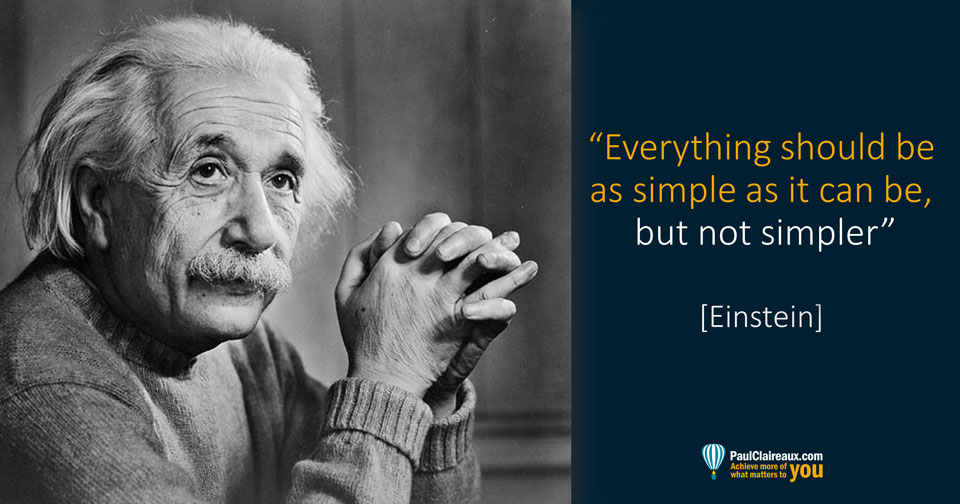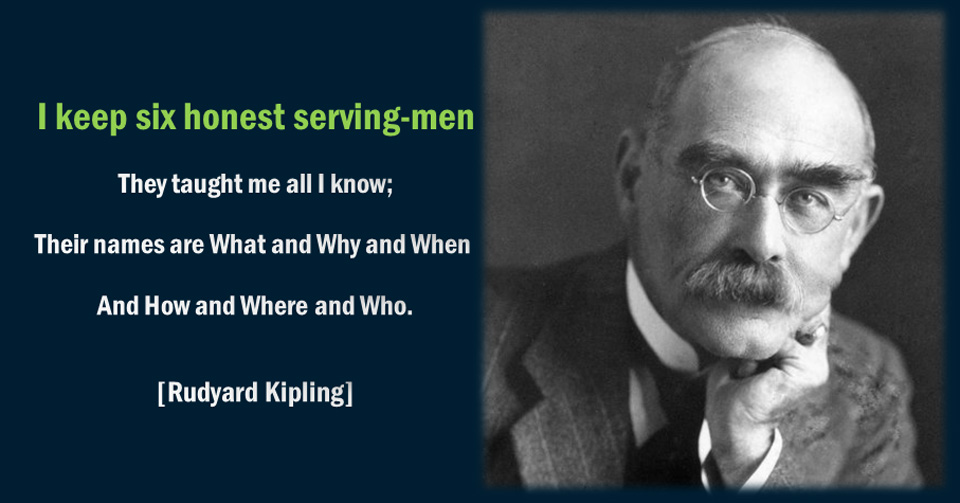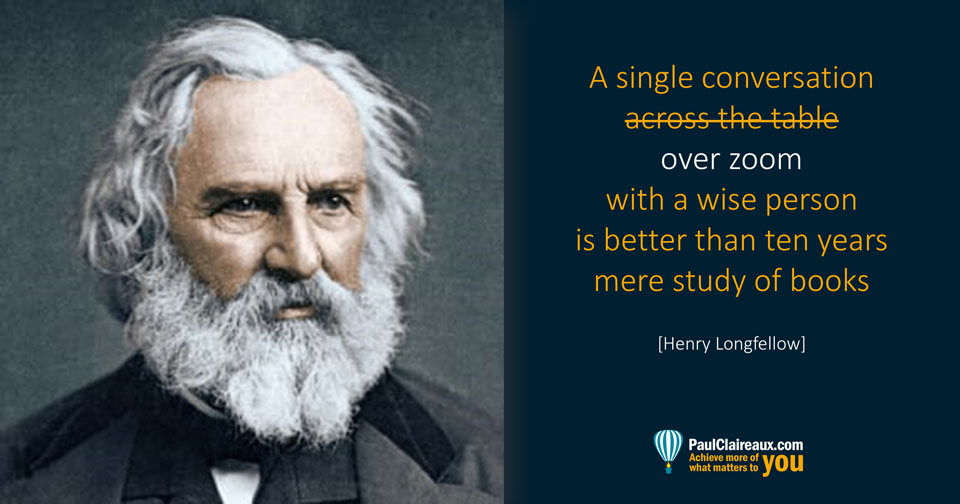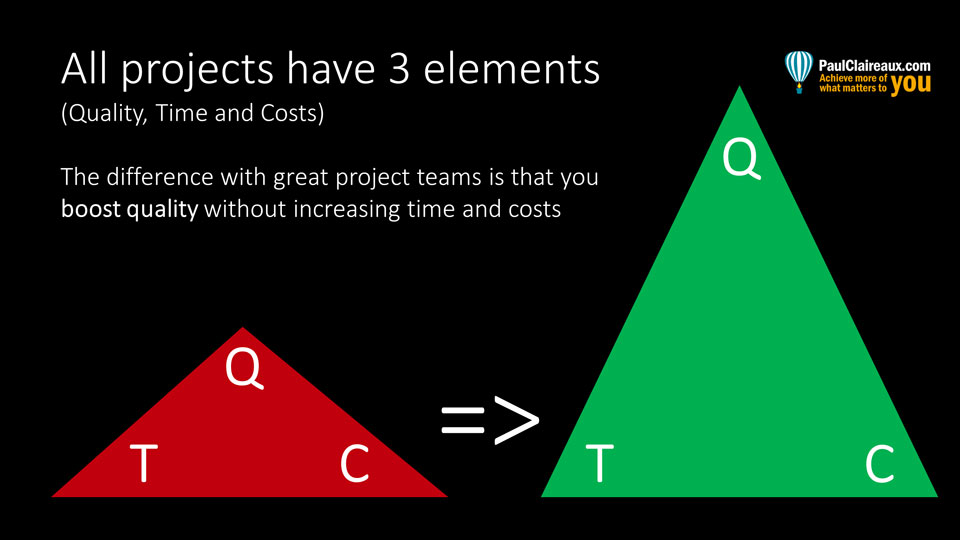Start with why but…
don't forget what, when, how, where and who

A great many business and marketing consultants have fallen in love with Simon Sinek and his book, ‘Start with why’…
but not everyone is that keen on Sinek’s ideas, and here’s why!
The ‘Start with Why’ talk
In case you’re not familiar with Sinek, here he is talking through his big idea.
Sinek is something of a ‘Marmite’ character in the business world.
Like the British vegetable extract spread, some people love this guy, while others are less impressed!
I don’t feel that strongly about Sinek and I have to hand it to him for his success with this single question idea.
What’s the idea?
Well, watch the video for more on that. My take, in a nutshell, is that this is about focussing on (and communicating) your ‘Why’ (your purpose) to motivate yourself and your team to deliver great results – and to motivate customers to buy from you.
Is this really a new idea?
No, the idea about the value of having a ‘why’ goes back a long way before Sinek, certainly to Nietzsche and probably long before that.
Nietzsche said,
He who has a ‘why’ to live can bear with almost any ‘how’
Indeed, it was that powerful quote that helped Victor Frankl survive his own imprisonment (and murder of his family) in the Nazi concentration camps during World War II.
So, yes, ‘having a why’ can be extremely powerful, and as Michael Schein points out, we can learn from Sinek’s marketing tactics too.
However, I think we need deeper Insights than Sinek offers, and Mencken’s observation here is worth remembering.

My view is that the challenges we face in the world are not helped by people offering simple answers to complex problems, whether in Onion Ring models or two by two matrices on Flip Charts as Sinek is prone to do.
This is not to say that I think Sinek is wrong about the importance of having a ‘Why’, we know from Nietzsche and Frankl that it matters. I’m just saying that life and business success is more complex than getting your ‘purpose’ sorted out.
One of our challenges is that we’re attracted to Siren calls of ‘quick and simple’ ideas.
It’s an issue to which I devoted a whole chapter of my first book, ‘Who can you trust about money?’
What’s more, as Cal Newport shows here, having a ‘passion’ for your work, at least at the outset, is not a prerequisite to success.
Newport, like Sinek, offers Steve Jobs as an example but to prove exactly the opposite point!
This is a fascinating talk.
So, the evidence shows that most of us are attracted to overconfident presentations and simple ideas.
The problems start, as Einstein observed when we oversimplify ideas.

Understanding how ‘why’ is used to engage us.
The ‘why?’ question is certainly powerful because it engages our emotions. And when we’re emotionally engaged we’re open to suggestion.
Indeed, PR and Advertising people have understood this for a hundred years, and the history of how they learned it, is fascinating too.
It all started in the roaring 1920s in the USA, when Edward Bernays (nephew of Sigmund Freud) pulled a PR stunt in New York’s Time Square to prove that emotional selling could persuade women to start smoking en masse, for the first time.
It was a clever use of Individual and Social Psychology ideas – and an incredibly effective PR campaign. Sales of cigarettes skyrocketed.
It just wasn’t good for the health of the world – and especially women!
That book chapter is one of four free downloads I send out to everyone on Newsletter sign up.

So, if ‘Why’ is not enough, how many questions do you need?
Well, again I don’t think there’s anything new to this.
When we’re trying to solve our biggest challenges (in business or our personal lives) we need to six questions, not one.

In different contexts, we’ll need multiple uses of all six of those questions too.
So, by all means, find your ‘Why’ but just be sure to explore the other questions too.
Because together, as Rudyard Kipling said, those questions can teach us everything we need to know.
We just need to direct our questions to the right people.

We also need to listen carefully, take notes and challenge ideas that don’t make sense.
Of course, being able to listen is a challenge in itself, and as Hemingway said, ‘most people never listen”
If you want success in your sales, however, you need to get good at listening.
So… should you ‘start with why’?
Well, it helps to be clear on ‘why’ this thing you’re doing matters to people, and why it matters to you and your business too.
Here, for example, are 12 reasons ‘why’ Financial Service Businesses might want to put Education at the heart of their marketing.
For best viewing, rotate your phone to horizontal, and click the RH button under the flipbook for one slide at a time.
However, to deliver anything of worth, and even to work out ‘What’ it is we want to build and ‘Why’… we surely need to decide on ‘Who’ we’re going to work with.
And, according to Jim Collins who wrote ‘Good to great’, the question most successful leaders start with is ‘Who’
Here’s an extract from his work.
You are a bus driver.
The bus, your company, is at a standstill, and it’s your job to get it going.
You have to decide where you’re going, how you’re going to get there, and who’s going with you.
Most people assume that great bus drivers (read: business leaders) immediately start the journey by announcing to the people on the bus where they’re going—by setting a new direction or by articulating a fresh corporate vision.
In fact, leaders of companies that go from good to great, start not with “where” but with “who.”
They start by getting the right people on the bus, the wrong people off the bus, and the right people in the right seats.
And they stick with that discipline—first the people, then the direction—no matter how dire the circumstances.
So, of course, ‘Why’ is an important question but it’s really not the only question that matters.
We also need to learn to think in parallel about all the important questions, not just one question at a time.
The path through to a result is not about starting with one question and taking others in turn.
It’s about circling around the ‘art of the possible’ and making compromises between questions of:
- What you can deliver.
- How good it will be.
- When you’ll deliver it.
- How much it will cost.
And you can only answer those questions when you know ‘Who’ you can get to be part of your team, on your bus!

Hope that’s helpful.
Drop me a line if you’d like to explore any of these ideas further.
Thanks for dropping in
Paul
For more ideas to achieve more in your life and make more of your money, sign up to my newsletter
As a thank you, I’ll send you my ‘5 Steps for planning your Financial Freedom’ and the first chapter of my book, ‘Who misleads you about money?’

Also, for more frequent ideas – and more interaction – you can join my Facebook group here
Share your comments here
You can comment as a guest (just tick that box) or log in with your social media or DISQUS account.

Discuss this article